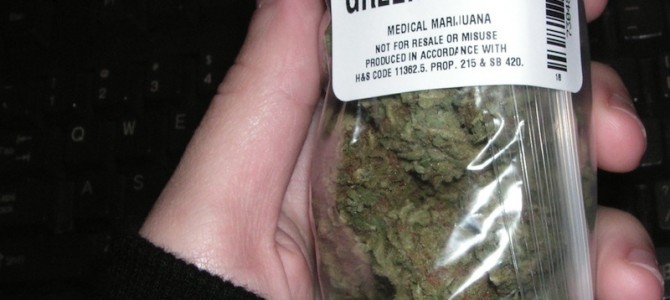I think we should take Maureen Dowd’s bad marijuana trip seriously.
I know I’m in the minority on this.
It’s like shooting fish in a barrel to make fun of Dowd for blithely chomping away at a marijuana chocolate bar, having made no effort to figure out the proper dosage, and consequently spending the rest of the day curled up in the fetal position—a story that displays all the shallow thinking that makes Dowd’s columns so inadvertently amusing.
Sarah Jeong won the Internet on this with a projection of what the other New York Times columnists would sound like if they fried their brains on various drugs. The best part of this is that the high versions of Tom Friedman and Gail Collins sound pretty much like they do when they are (presumably) sober.
It’s all very amusing in its own way, yet too much of this commentary is offered with a wink and a nod to the drug culture, because it’s considered cool these days to look at drug use as fun and funny and mostly harmless.
And that leads me to the message from Dowd’s column that we should be taking more seriously, because her bad trip is about more than her own foolishness and naiveté.
Colorado is the beginning of a great experiment in drug legalization, and it turns out that legalization is no love-in.
Too much of the case for legalization has been based on a kind of fairy tale about how pot-smokers are a bunch of harmless, mellow hippies. But Colorado didn’t just legalize marijuana. It legalized tetrahydrocannabinol (THC), the main psychotropic ingredient in marijuana. When you smoke marijuana, you can only ingest so much THC so fast, but hard-core druggies have already figured out ways to ingest THC in a far more concentrated form by distilling a THC resin called “dabs” or “earwax.” While the DEA is cracking down on “wax” in other state, the folks in Colorado are embracing it. And as legalization has turned THC into an industry, we’re seeing concentrated versions of the drug in the “edibles”—chocolate bars, candies, etc.—that Dowd took.
And guess what? Concentrated THC is not so mellow. As they say, the dose makes the poison, and any drug is a “hard drug” if you take it in sufficient concentration.
No, THC won’t kill you. But it can kill some of the complacency about drug use. Yes, some pot smokers are the aforementioned mellow hippies, who are no more pathetic than hippies usually are. Others are high-functioning recreational users: educated professionals from Monday to Friday who smoke a little weed on the weekends. But a good number are nihilistic losers who just want to use the drug to crawl into a hole and avoid life. And in high doses, THC can cause severe psychological problems and even induce violent behavior.
This is a reminder that drug use is a vice, and the first person you sin against is yourself, by wasting some part of your life. Marijuana in particular is famous for being a dumb high, accompanied by watching crappy TV, gobbling junk food, and giggling at lame jokes. Not exactly the way to get the most out of life. In its more concentrated form, as Dowd found out, it not really accurate to call it “getting really high.” It sounds more like getting really low.
I’m in favor of legalization because, as with alcohol, the evils that arise from prohibition are greater than the evils it was intended to prevent. Consider the gang warfare of the inner cities, motivated and paid for by the drug trade. It’s Al Capone’s Chicago, but in poor black neighborhoods instead of poor white ones.
More broadly, freedom has to mean the freedom to be wrong. If we say we won’t let people waste their lives on liquor or weed, we’re embracing a paternalism that’s eventually going to include telling people what they can and cannot do with their education, their careers, their finances, trans-fats and sugary sodas, and oh, yes, political speech. Pretty soon we’ll have bumbling idiots trying to manage everything for us from some windowless room Washington, DC. Oh, wait, that’s already happening.
But if we’re going to put an end to the destructiveness of the War on Drugs, we have to acknowledge that we’re recognizing the right to indulge in a vice—even, potentially, a dangerous vice. There’s good precedent for doing so. Alcohol was prohibited and then legalized, all without preventing some people from getting dangerously drunk, getting into bar fights, beating their wives or girlfriends, driving drunk, and so on. We accepted that prohibition had failed, and we found better ways to combat these ill effects of drinking. The same thing is going to have to happen with marijuana and other drugs.
But first we have to get past that glamorized fairy tale about harmless mellow hippies.
Follow Robert on Twitter.








